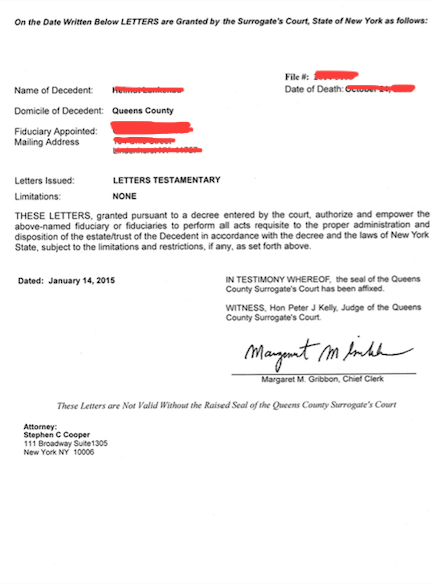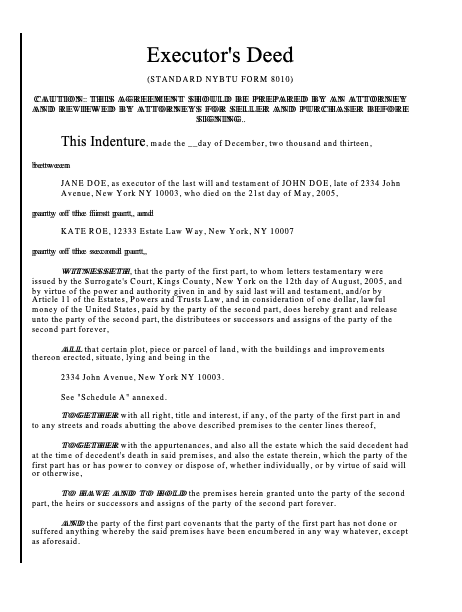How Does an Executor Sell a House: A Step-by-Step Guide
In order for the executor to sell a house, they have to follow several steps:
- Get appointed as the executor
- Find a buyer
- Get a contract from the buyer
- Have an attorney draft the Executor’s Deed
- Receive the payment for the house
- Sign the Executor’s Deed and have it notarized
- Have the buyer file the deed with the city
- Deposit the funds into the estate account
You would think that for an executor to sell a house, it would be enough that the executor is nominated by the will. But that’s not the case. Being nominated by the will is not enough. The executor has to be appointed by the Court. To have an executor to sell a house, they need to have Letters Testamentary issued by the court. To have the letters testamentary, the executor’s estate lawyer will need to file the will, probate petition, waivers, and other documents with the Court, appear at hearings, and follow all other steps of the probate process. You can learn more about the probate process here.

Once you are appointed as the executor, you can look for a buyer, with or without a real estate broker. After you find a buyer, you can have your lawyer draft a contract and receive a deposit from the buyer. The lawyer can then draft an Executor’s Deed, which is the document used to sell the house to the buyer.

At the closing, the executor will sign the deed to the house and the buyer will pay for the house. The executor will deposit the money to the estate account. After getting releases from beneficiaries and creditors or a court order authorizing the distribution of funds, the executor will distribute the estate funds to the beneficiaries of the estate.
Read the Letters Testamentary carefully before selling the house. Some courts, Brooklyn in particular, require that before the executor sells the house, they have the contract approved by the courts. This is done for the executor’s own protection and for the protection of the beneficiaries, as there have been some people targeting estates in Brooklyn where they give some money to the executor up-front in order to get a steal on the house. This approval process may delay the closing date, a fact which the buyers should be aware of. There should be a clause in the contract saying that the executor may need time to get the court’s approval to sell the house.
Here are some common suggestions that arise from our experience helping executors sell a house in the New York real estate market:
- Because the filing of probate is a public record, you will have a lot of people contacting you offering to buy the house for an “all-cash offer.” Those people are targeting estates in order to flip the house. You can hang up on those phone calls.
- You can find a good starting price-point for the house by checking a Zillow estimate.
- When you tell people you’re an executor selling a house, they will try to use that to get a better deal.
- If you need to sell the house fast, consider lowering the price a little, but not too much.
- In the New York market, it is usually not a good investment to remodel a house before selling it. If you are planning to use the estate’s assets to fix up the house, then it’s probably a good idea to get written approval from the other beneficiaries first.
As an executor who is selling a house, you want to make sure that you get the best price and not take too long. You will need to get acquainted with the real estate market and make sure that you get the best price for the property. You also need to comply with the restrictions on your letters testamentary and all of the requirements of the applicable estate laws.
If you are an executor who is looking for an estate attorney to help you sell a house, you can call the offices of Albert Goodwin at (212) 233-1233.
